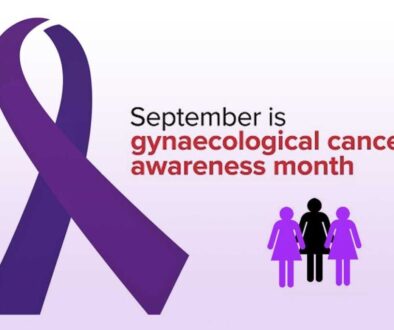What are the most updated treatments for ovarian cancer?
The treatments for ovarian cancer have been developed and been developing for decades. Ovarian cancer standard treatment is surgery or chemotherapy. Although advanced ovarian cancer and high grade serous ovarian cancer are considered treating with targeted therapy, hormonal therapy.
Treatment plans for ovarian cancer depend on factors such as:
- The location of the cancer
- How far it has spread (the stage)
- Type of cancer
- Cells abnormality (the grade)
- Your health and your fitness level
Surgery is the primary treatment for ovarian cancer. The type and amount of surgery depend on the type of ovarian cancer and its stage. The standard treatment for ovarian cancer is considered to be maximal cytoreductive surgical debulking followed by platinum-based chemotherapy.
Chemotherapy is a treatment that uses anticancer drugs that destroys cancer cells. The most common chemotherapy drug prescribed by doctors, to treat ovarian cancer is carboplatin, which is either given as monotherapy or in a combination with paclitaxel (Taxol), another chemotherapy drug.
Cancer research has enabled wast improvements in cancer diagnosis and treatments for ovarian cancer with the development of new drugs, therapies. Science and technology have proven the concept of ‘Cancer – An Untreatable and Deadly Disease’, since decades.
New therapies developed, has enabled the doctors to choose well advance treatment plans for cancer. For ovarian cancer, new therapies have developed. Many significant advances are made in surgical and chemo based treatments for ovarian cancer.
Many drugs have been developed and tested in ongoing clinical trials aiming to evaluate the treatment efficacy in ovarian cancer. New drugs are mostly targeted against molecular targets and pathways that are indispensable for cancer cell proliferation, tumor growth and escape from immune surveillance and death signals. These are inhibitors of growth factors, anti-angiogenic factors, poly-ADP-ribose polymerase (PARP) inhibitors, or folate receptor inhibitors. Many immunotherapeutic drugs are tested and are considered to improve therapy and lead to the delay of recurrence or stabilization of the disease.
FDA has recently approved, Bevacizumab in combination with carboplatin and paclitaxel for patients with epithelial ovarian, fallopian tube, or primary peritoneal cancer. Bevacizumab in combination have approval for first-line therapy, and followed by bevacizumab as a single agent, for stage III and IV disease after initial surgical resection.
Antiangiogenic therapies
These therapies are considered to be effective in improving the PFS (Progression-Free Survival) in recurrent ovarian cancer cases. The several antiangiogenic therapies are bevacizumab, trebananib, VEGFR inhibitors such as Cediranib, Pazopanib, Nintedanib. These therapies are approved as a second-line treatment for recurrent ovarian cancer treatment. Many studies analyzed antiangiogenic therapies in two subgroups; (1) Platinum resistant (2) Platinum sensitive recurrent ovarian cancer, showed an increase in PFS for about 2 – 6 months and an Overall Survival (OS) to be better in the platinum-resistant group.
PARP Inhibitor
Poly (ADP-ribose) Polymerase (PARP) proteins are being standard care for patients with recurrent ovarian cancer in BRCA mutated individuals. At least PARP inhibitors are approved.
One such PARP inhibitor by Astra Zeneca has significantly shown an improved PFS in patients with platinum-sensitive recurrent ovarian cancer, regardless of BRCA mutation. Although in Dec 2018 the US FDA did approve this treatment for the maintenance treatments for ovarian cancer in adult patients with germline and somatic BRCA-mutated advanced epithelial ovarian, fallopian tube or primary peritoneal cancer who are in complete or partial response to first-line platinum-based chemotherapy.
Many studies are ongoing for PARPi efficacy in primary treatment and as maintenance after primary treatment. PARPi as a monotherapy or in combination with other biological agents.
Since women with BRCA 1 & 2 mutations and cisplatin sensitive ovarian cancer patients are considered to response to PARPi, it is widely accepted that genetic testing for BRCA1 & 2 analysis should be affected for all women with ovarian cancer.
Checkpoint inhibitors and immune modulators
Immune checkpoint inhibitor physiologically, stimulates or block T lymphocyte activity, so as to regulate the immune response and the tolerance of it. Checkpoint receptors such as Programmed Cell Death Protein 1 (PD-1) act to reduce autoimmune responses against self-tissues. In cancer patients, the activity of PD-1 is increased that results in impaired natural anti-cancer immunity. And treating patients with immune-checkpoint inhibitors is to unblock antitumor responses. The marker recognized to predict tumor response to immune checkpoint inhibitors is PD-1 ligand (PDL-1) expression. Based on these markers, many studies suggested that over half of high-grade serous ovarian cancers who showed adaptive immune response are likely to respond to immune checkpoint inhibitors.
Many immune checkpoint inhibitors are present being under clinical trials and many have been approved for clinical application. Bevacizumab and cyclophosphamide (NCT02520154) is an immune checkpoint inhibitor recommended as monotherapy for recurrent ovarian cancer. Ipilimumab (NCT01611558) is under clinical for studying the efficacy of the drug as a monotherapy and in combination with nivolumab in recurrent platinum-sensitive ovarian cancer. Atezolizumab (NCT02659384) is under the Phase II randomized trial to investigate the efficacy of atezolizumab with recurrent platinum-resistant ovarian cancer.
The biological drugs and new therapeutic approaches developed but do not evident to cure ovarian cancer, although they are considered to bring the long-awaited promise of turning it into a manageable chronic disease. The present way of choosing a treatment plan is considered to be personalized treatment, which depends on the tumor type, subtype, the staging and moreover the molecular and genetic characterization of cancer. To consider personalized medicine, molecular and genetic testing of the tumor and an individual (Somatic and Germline genes, respectively) is recommended.
References:
- Cortez, Alexander J., Patrycja Tudrej, Katarzyna A. Kujawa, and Katarzyna M. Lisowska. “Advances in ovarian cancer therapy.” Cancer chemotherapy and pharmacology 81, no. 1 (2018): 17-38.
- https://www.cancerresearchuk.org/about-cancer/ovarian-cancer/treatment/treatment-decisions




